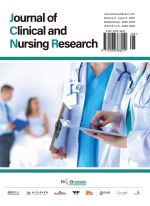Clinical Observation of Xiaochaihu Decoction Combined with Xiaoxianxiong Decoction in the Treatment of Post-stroke Pneumonia
Abstract
Objective: To investigate the clinical efficacy of Xiaochaihu Decoction combined with Xiaoxianxiong Decoction in the treatment of post-stroke pneumonia. Methods: To complete the sample grouping comparison, all patients with post-stroke pneumonia were investigated, and the number of cases was 60. These patients’ diseases were consistent with the dialectical standards of traditional Chinese medicine (phlegm-heat obstructing lungs). The patients were randomly divided into a control group (30 cases, treated with antibiotics and symptomatic methods) and a treatment group (30 cases, treated with Xiaochaihu Decoction and Xiaoxianxiong Decoction on the basis of the control group). Various indicators were compared. Results: The total clinical effective rates were 93% and 80% in the treatment group and the control group, respectively, with statistical significance (P < 0.05). The improvement of various clinical symptoms was compared, and the values in the treatment group were reduced, showing significance (P < 0.05). Analysis of serum factor indicators showed that the overall trend of the treatment group was reduced, and the comparison between groups was below 0.05. Conclusion: Xiaochaihu Decoction combined with Xiaoxianxiong Decoction has a significant clinical effect in the treatment of post-stroke pneumonia (phlegm-heat obstructing lungs syndrome), which can reduce inflammatory reactions and has few adverse reactions, worthy of clinical application
References
China Stroke Association Emergency Medicine Branch, Chinese Medical Association Emergency Medicine Branch Stroke Study Group, Chinese Geriatrics Society Emergency Medicine Branch, et al., 2019, Chinese Expert Consensus on the Diagnosis and Treatment of Stroke-Associated Pneumonia (2019 Updated Version). Chinese Journal of Emergency Medicine, 39(12): 1135–1143.
He S, 2012, Retrospective Investigation of Stroke-Associated Pneumonia in Neurological Intensive Care Unit, thesis, Jilin University. DOI: CNKI:CDMD:2.1012.367082.
Zheng W, Chen J, Du L, Xu Y, et al., 2021, Research Progress on the Treatment of Stroke-Associated Pneumonia With Traditional Chinese Medicine. New Chinese Medicine, 53(4): 4.
Yang L, Wu L, Yang X, et al., 2023, A Retrospective Study of Traditional Chinese Medicine Intervention in Stroke-Associated Pneumonia Complicated With Multidrug-Resistant Bacterial Infection. Chinese Journal of Emergency Medicine in Traditional Chinese Medicine, 32(2): 212–216.
Duan M, Wu H, Yang W, et al., 2024, Summary of Wang Ying’s Experience in Treating Stroke-Associated Pneumonia of Phlegm-Heat Obstructing Lung Type. Journal of Guizhou University of Traditional Chinese Medicine, 2024(1): 46.
Zheng X, 2002, Guiding Principles for Clinical Research of New Chinese Medicinal Herbs. China Medical Science and Technology Press, Beijing: 54–57.
Li J, Jia R, 2019, The Effect of Integrated Traditional Chinese and Western Medicine on Inflammatory Factors in the Treatment of Hypostatic Pneumonia After Stroke. Journal of Practical Traditional Chinese Medicine, 35(7): 2.
Song P, Zhang X, Yao H, 2018, TCM Symptoms and Syndrome Characteristics of Stroke-Associated Pneumonia. Journal of Practical Medicine, 34(9): 4. DOI: 10.3969/j.issn.1006-5725.2018.09.037.
Chang W, Zhang W, Zhang Y, 2024, Correlation Analysis Between Risk Factors of Stroke-Associated Pneumonia and TCM Syndromes. Clinical Journal of Chinese Medicine, 16(9): 129–134.
Zhang L, Zhou J, 2019, Treatment of 41 Cases of Stroke-Associated Pneumonia of Phlegm-Heat Accumulating in the Lung Type With Qingre Huatan Tongfu Decoction. Global Traditional Chinese Medicine, 9(14): 1713–1715.
Li S, Li Y, 2018, Theory and Practice of Treatise on Febrile Diseases. People’s Medical Publishing House, Beijing: 246.
Tang X, Cui Y, Zhu H, et al., 2022, Research Progress on Chemical Constituents and Pharmacological Effects of Xiaochaihu Decoction. Journal of Jilin Medical College, 2022(3): 43.
Gao L, Xiang J, Yang F, 2024, Therapeutic Effect of Tongfu Huatan Recipe on Patients With Stroke-Associated Pneumonia of Phlegm-Heat and Fu-Organ Excess Type and Its Influence on Serum Inflammatory Factor Levels. World Journal of Integrated Traditional and Western Medicine, 2024(2): 19.
Gu W, 2021, Research and Application of Shen Nong’s Herbal Classic. Ancient Chinese Medical Books Publishing House, Beijing: 802.


